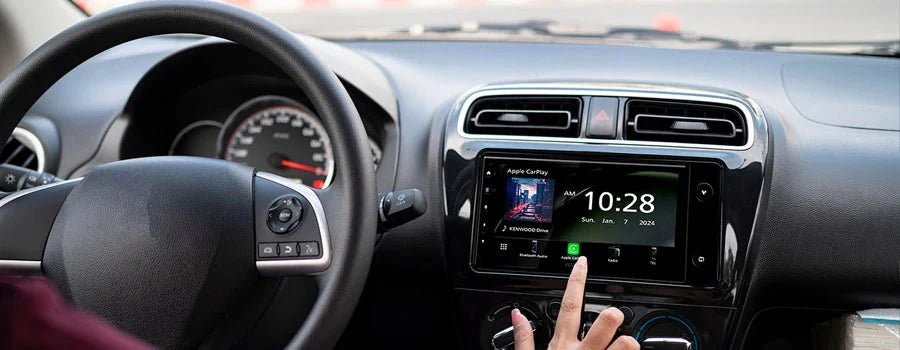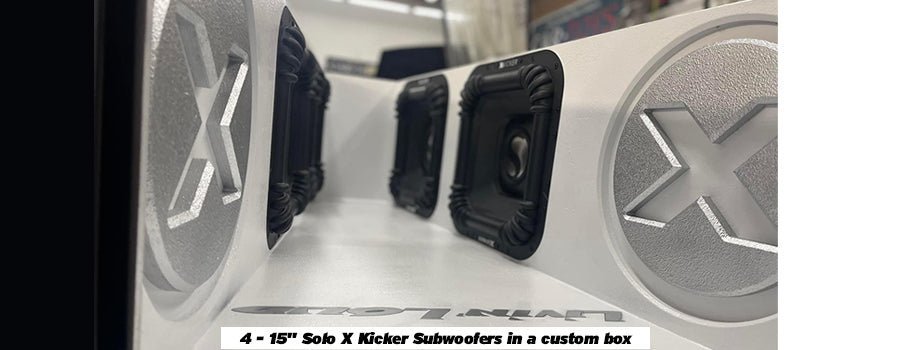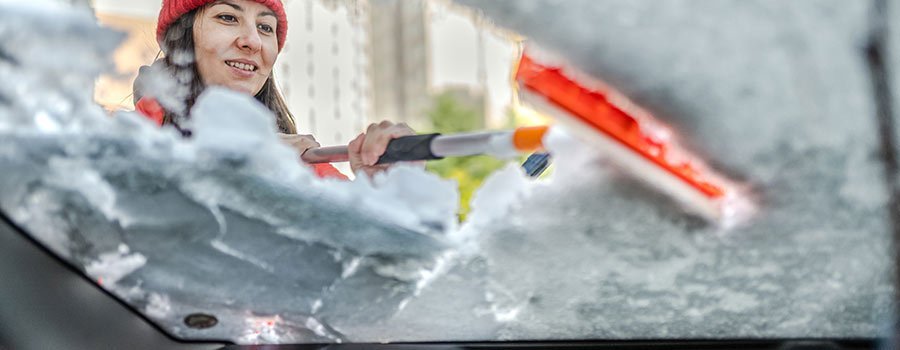
Showing 30 of 30 items
50 Items
Sort by:
Featured
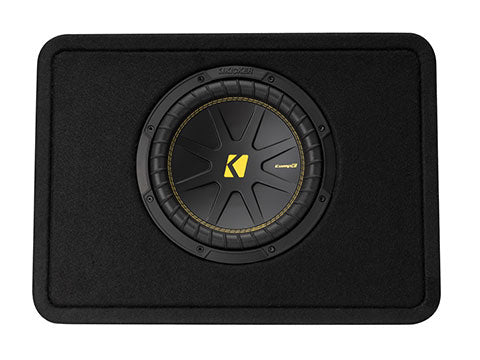
Kicker 50TCWC102 CompC 10" Loaded Sub Enclosure
- 250 Watts RMS | 500 Watts Peak
- Single 10" 2 Ohm CompC Subwoofer
- Frequency Response (Hz): 30-500
Hide Details
Show Details
Hide Details
Show Details
Kicker 50TCWC102 10" CompC Thin Profile Loaded Enclosure The KICKER® CompC™ Loaded Enclosures include a...
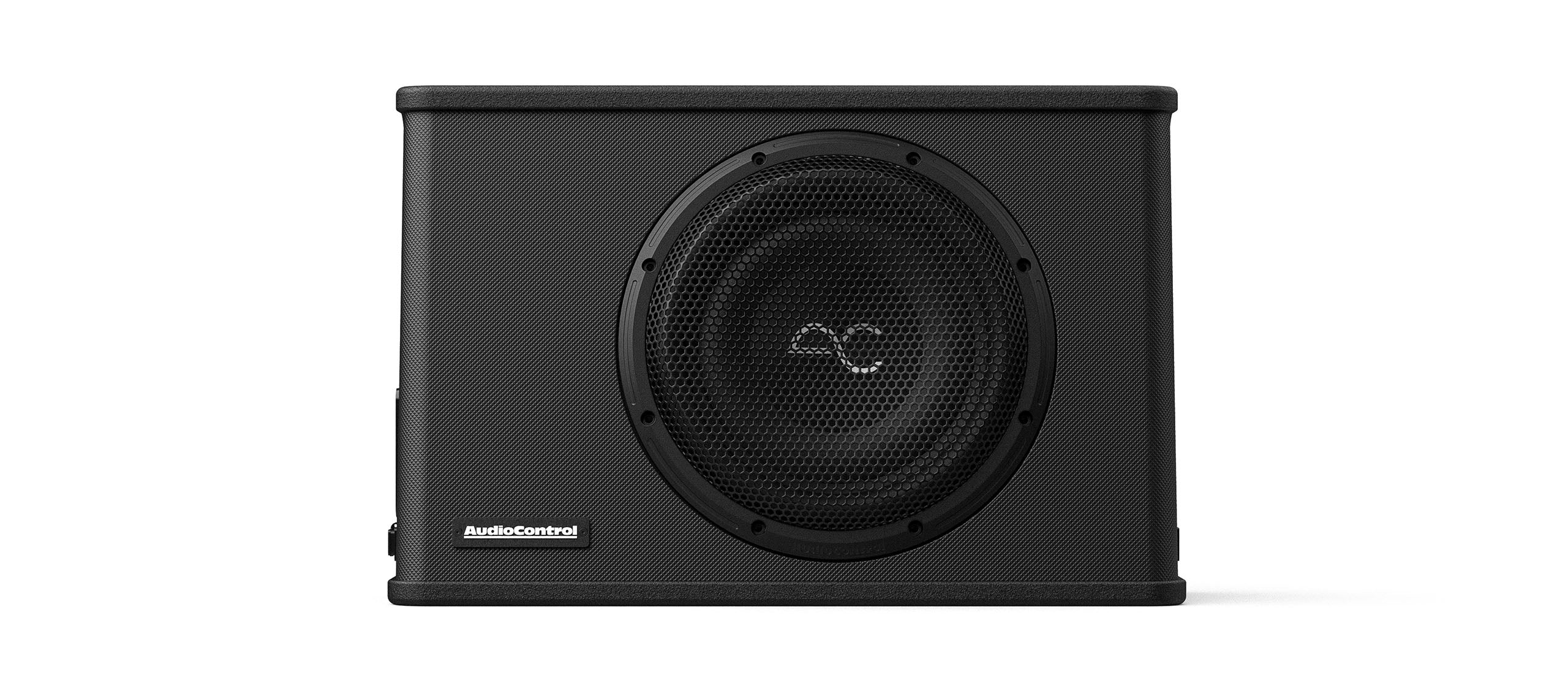
AudioControl SPC-W10 10″ Loaded Sub Enclosure
- 400 Watts RMS | 600 Watts Peak
- Wedge Shape Fits a Variety of Locations
- Element-Resistant Design
Hide Details
Show Details
Hide Details
Show Details
AudioControl SPC-W10 Space Series 10″ Sealed Loaded Subwoofer Wedge Enclosure Get ready to upgrade your...
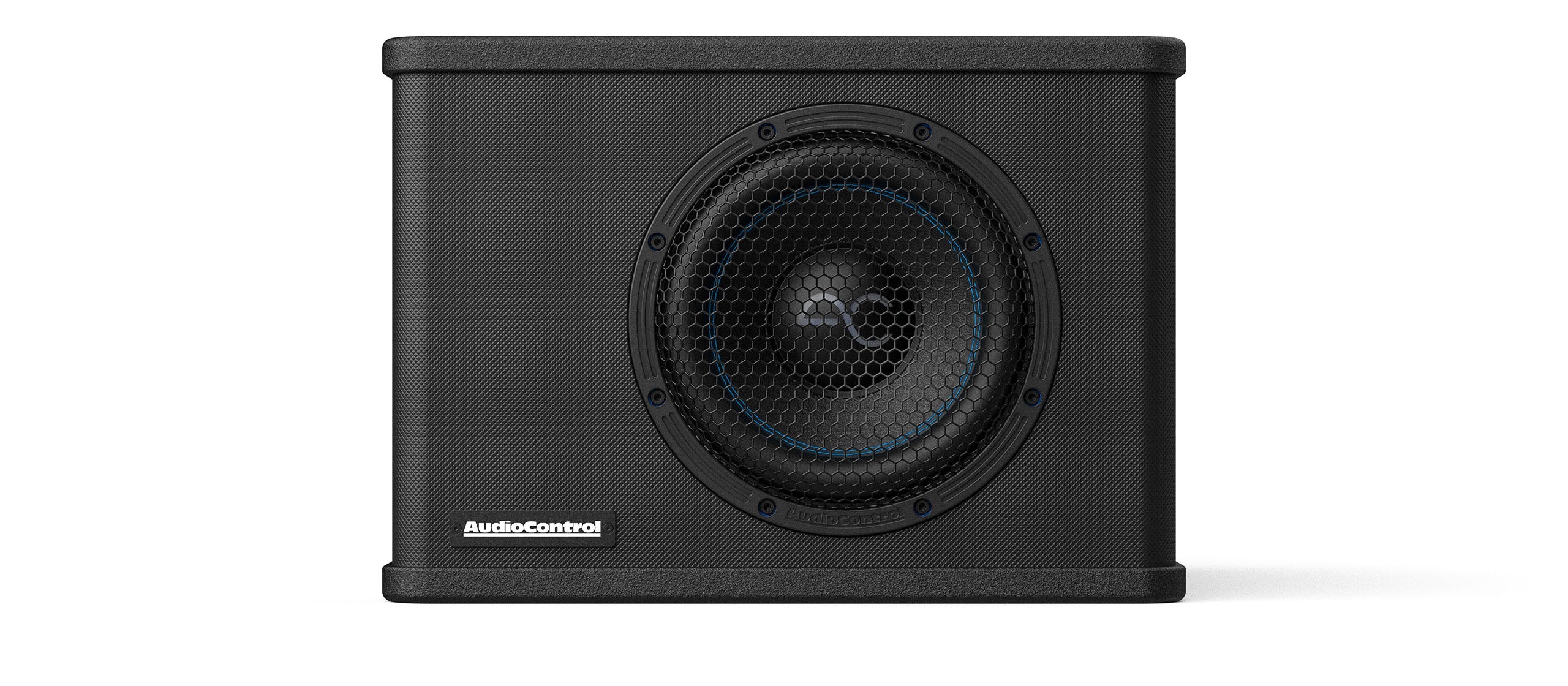
AudioControl SPK-V8 Spike Series 8" Loaded Sub Enclosure
- 350 Watts RMS | 500 Watts Peak
- Fiber Matrix Paper Cone with Mica Coating
- Element-Resistant Enclosure Design
Hide Details
Show Details
Hide Details
Show Details
AudioControl SPK-V8 Spike Series 8" Vented Loaded Subwoofer Enclosure Upgrade your audio experience with our...
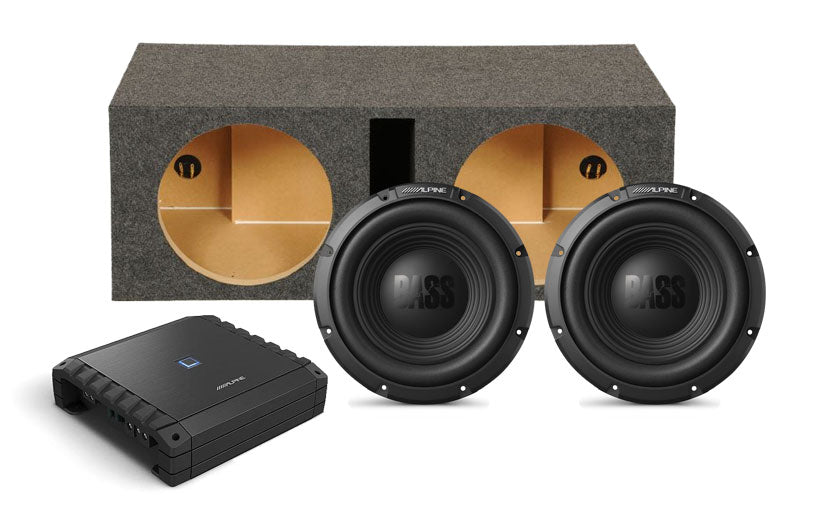
Alpine Dual 12" Bass Package - PPALP4HO
Package Includes:
- Two - Alpine SWA-12S4 Subwoofers
- One - Alpine S-A60M Amplifier
- One - Dual 12" Sealed Enclosure
Save 15%
Hide Details
Show Details
Hide Details
Show Details
Alpine Dual 12" Bass Package - PPALP4HO Package Includes: Two - Alpine SWA-12S4 Subwoofers One...
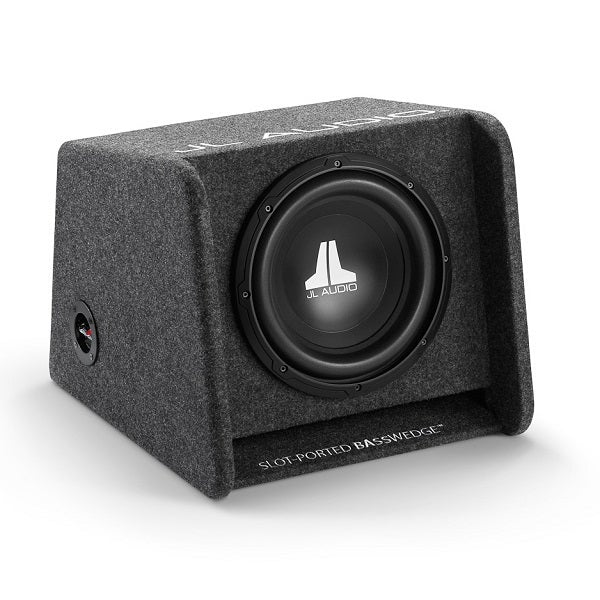
JL Audio CP110-W0v3 10" BassWedge Ported Loaded Enclosure
- Slot Ported BassWedge Design
- Comes Loaded, Wired and Ready
- Dark Gray Carpet with JL Audio Embroidery
Hide Details
Show Details
Hide Details
Show Details
JL Audio CP110-W0v3 10" BassWedge Ported Loaded Enclosure Enclosed Subwoofer System with 10W0v3-4 Driver –...
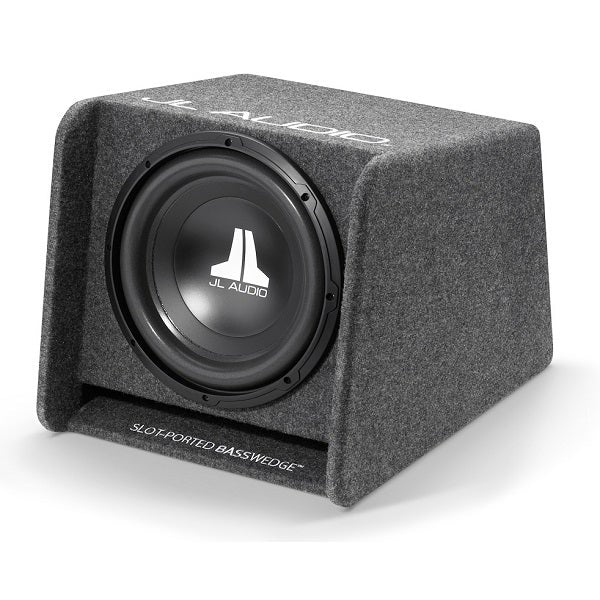
JL Audio CP112-W0v3 12" Loaded Sub Enclosure
- 300 Watts RMS | 600 Watts Peak
- Slot Ported BassWedge Design
- Comes Loaded, Wired and Ready
Hide Details
Show Details
Hide Details
Show Details
JL Audio CP112-W0v3 12" Loaded Sub Enclosure This powerful slot-ported BassWedge™ subwoofer system delivers awesome...
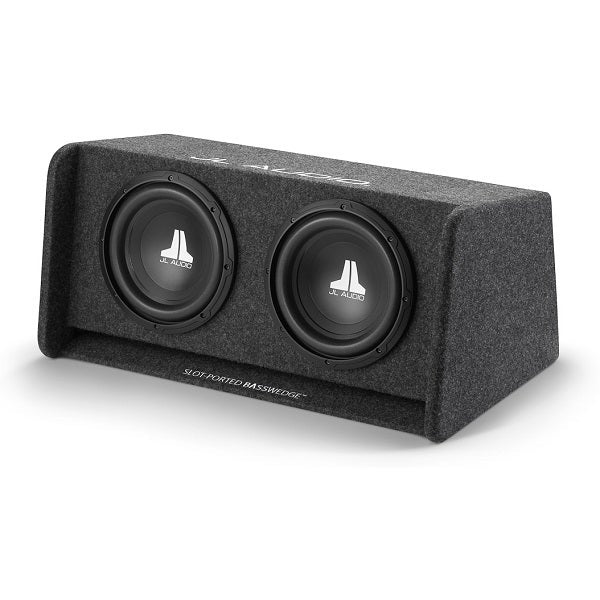
JL Audio CP210-W0v3 Dual 10" Loaded Sub Enclosure
- 600 Watts RMS | 1200 Watts Peak
- Slot Ported BassWedge Design
- Comes Loaded, Wired and Ready
Hide Details
Show Details
Hide Details
Show Details
JL Audio CP210-W0v3 Dual 10" BassWedge Ported Loaded Enclosure Enclosed Subwoofer System with Dual 10W0v3-4...
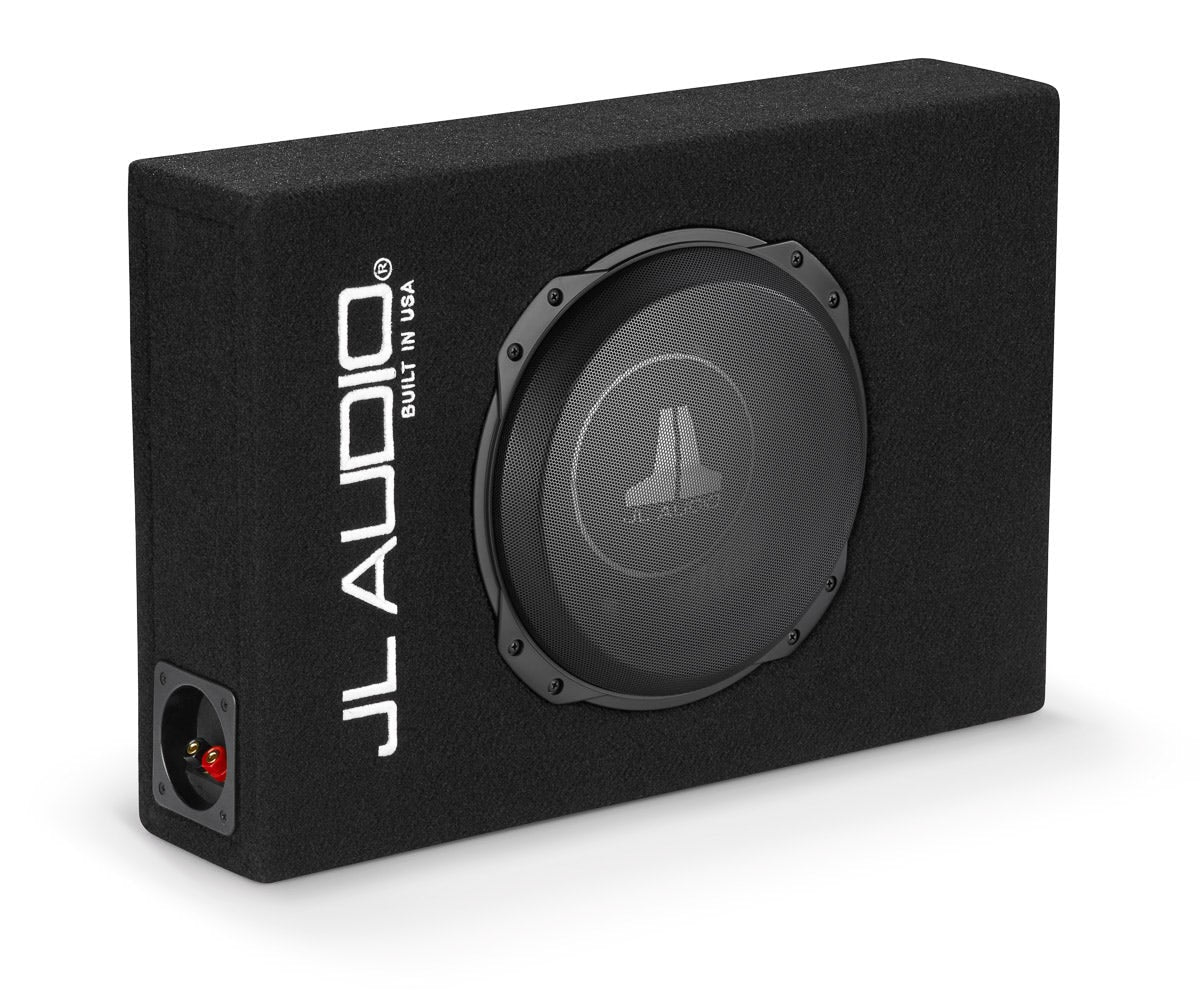
JL Audio CS110LG-TW3 Single 10TW3 PowerWedge -Sealed Box
- Sealed Power Wedge Compact Enclosure
- 400 Watt Continuous Power Handling
- 2 Ohms Final Impedance, Steel Grill Included
Hide Details
Show Details
Hide Details
Show Details
JL Audio CS110LG-TW3 Enclosed Subwoofer System with Single 10TW3-D4 Subwoofer Driver, Black Carpet (400 W,...
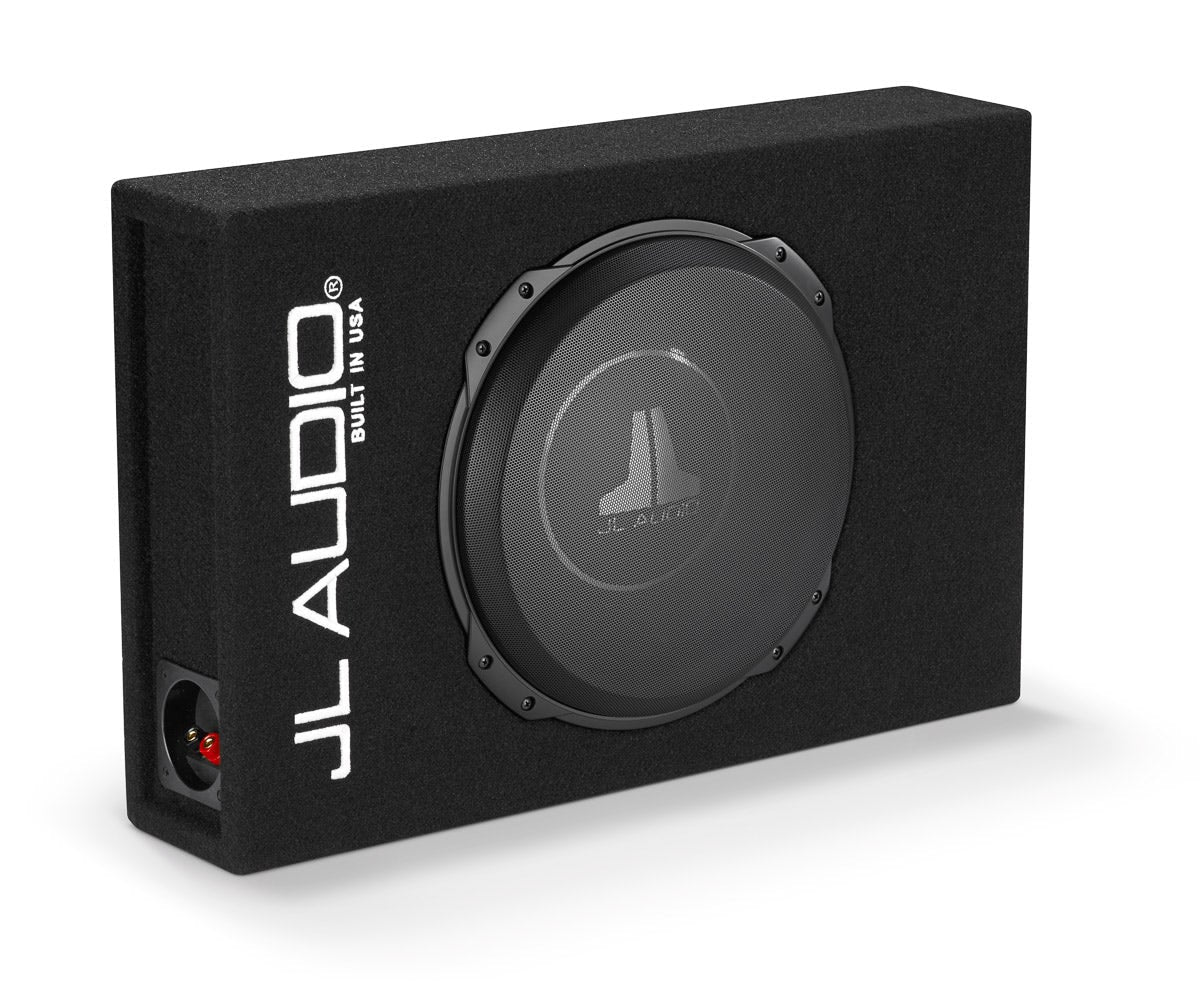
JL Audio CS112LG-TW3 Single 12TW3 PowerWedge - Sealed
- Single 12TW3-D4 Enclosure
- Black Carpet Finish
- 2 Ohms Final Impedance
- Steel Mesh Grill Included
Hide Details
Show Details
Hide Details
Show Details
JL Audio CS112LG-TW3 Enclosed Subwoofer System with Single 12TW3-D4 Subwoofer Driver, Black Carpet (400 W,...
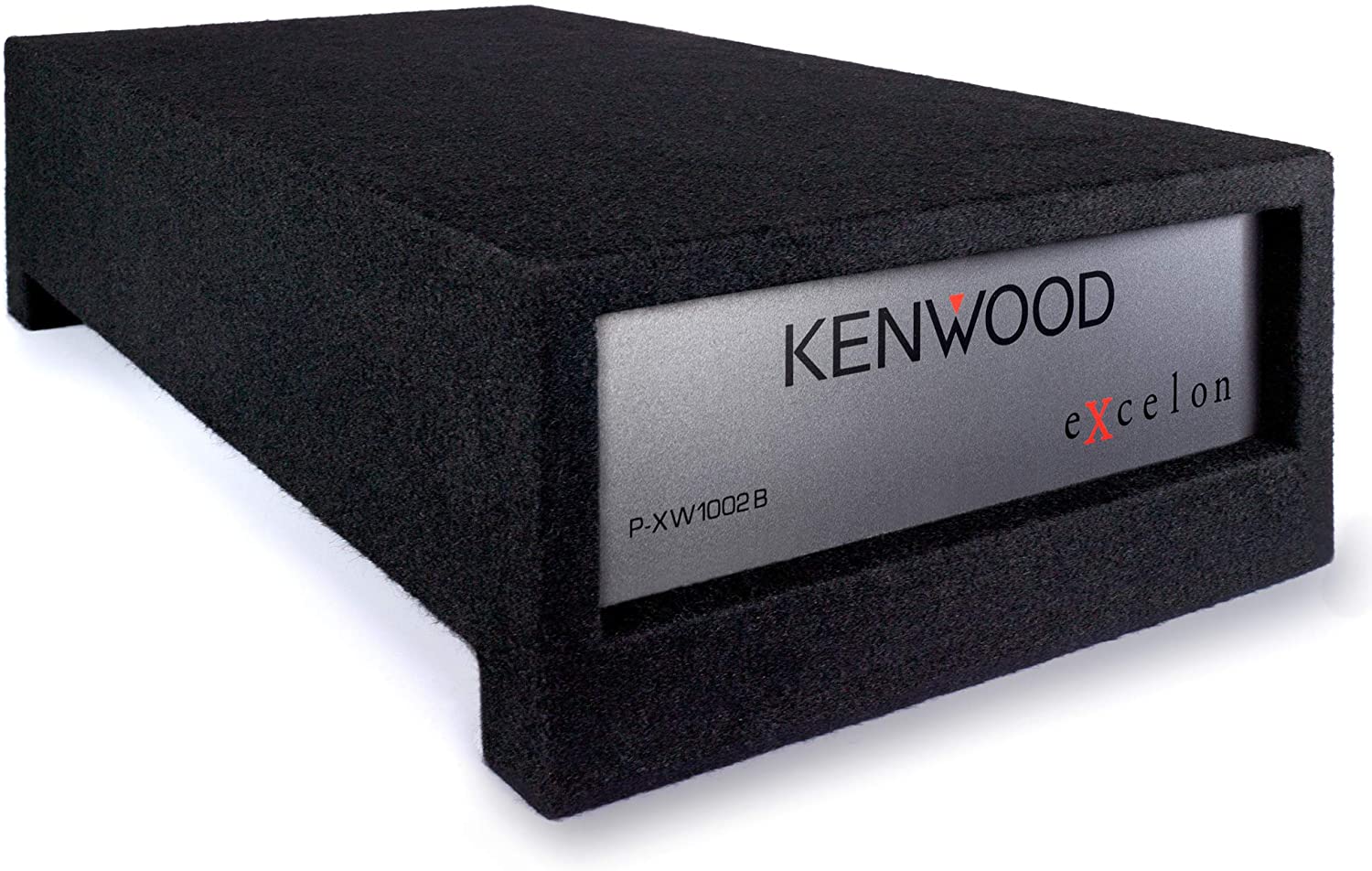
Kenwood Excelon P-XW1002B 10" Loaded Subwoofer Enclosure
- 10" Slim Subwoofer
- Small Space Bass SOLUTION
- Compact Design
Hide Details
Show Details
Hide Details
Show Details
Kenwood Excelon P-XW1002B 10" Loaded Subwoofer Enclosure The Kenwood Excelon P-XW1002B is a high-performance 10-inch...
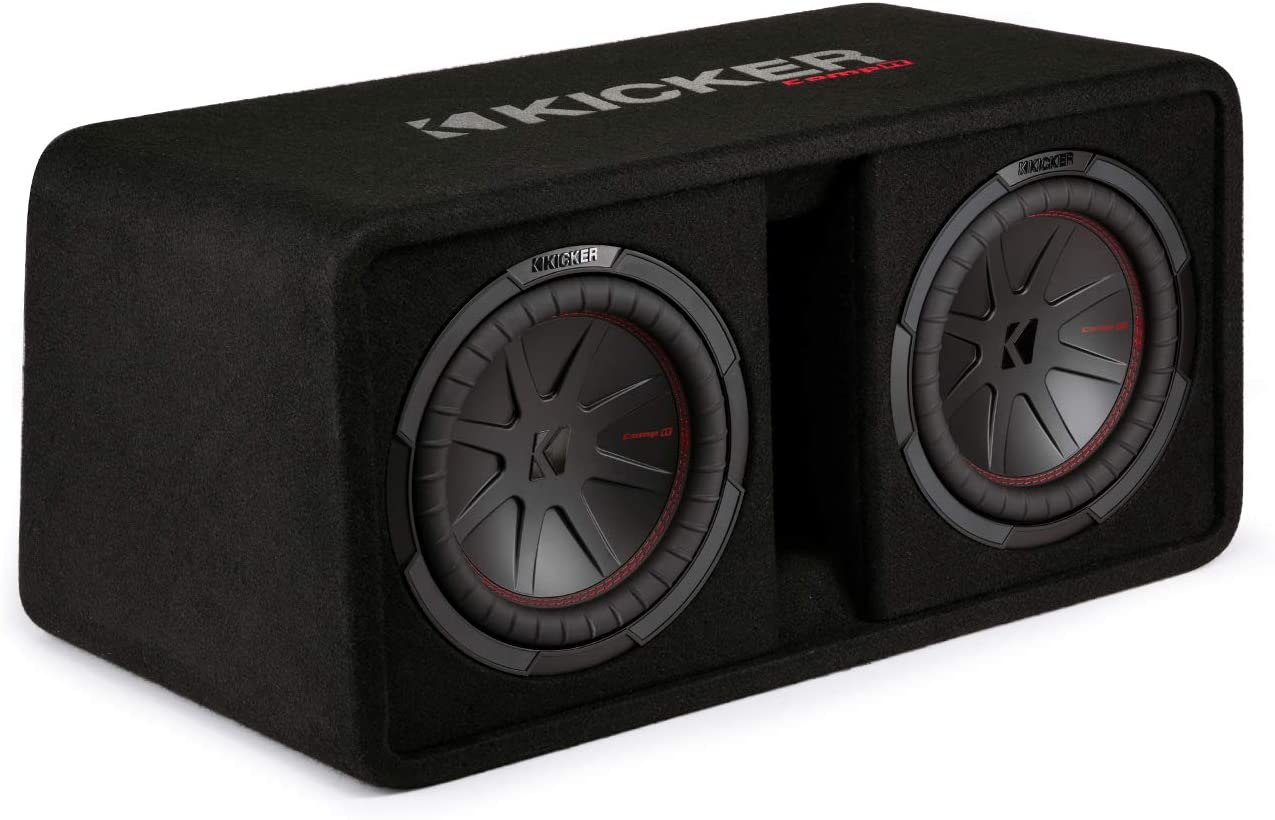
Kicker 48DCWR102 CompR Dual 10" Loaded Sub Enclosure
- 800 Watts RMS | 1600 Watts Peak
- Two - CompR 10" Subwoofers
- Front-Facing Port for Improved Bass
Save 15%
Hide Details
Show Details
Hide Details
Show Details
Kicker 48DCWR102 Dual CompR 10" Loaded Subwoofer Enclosure - 2 Ohm Upgrade your ride with...
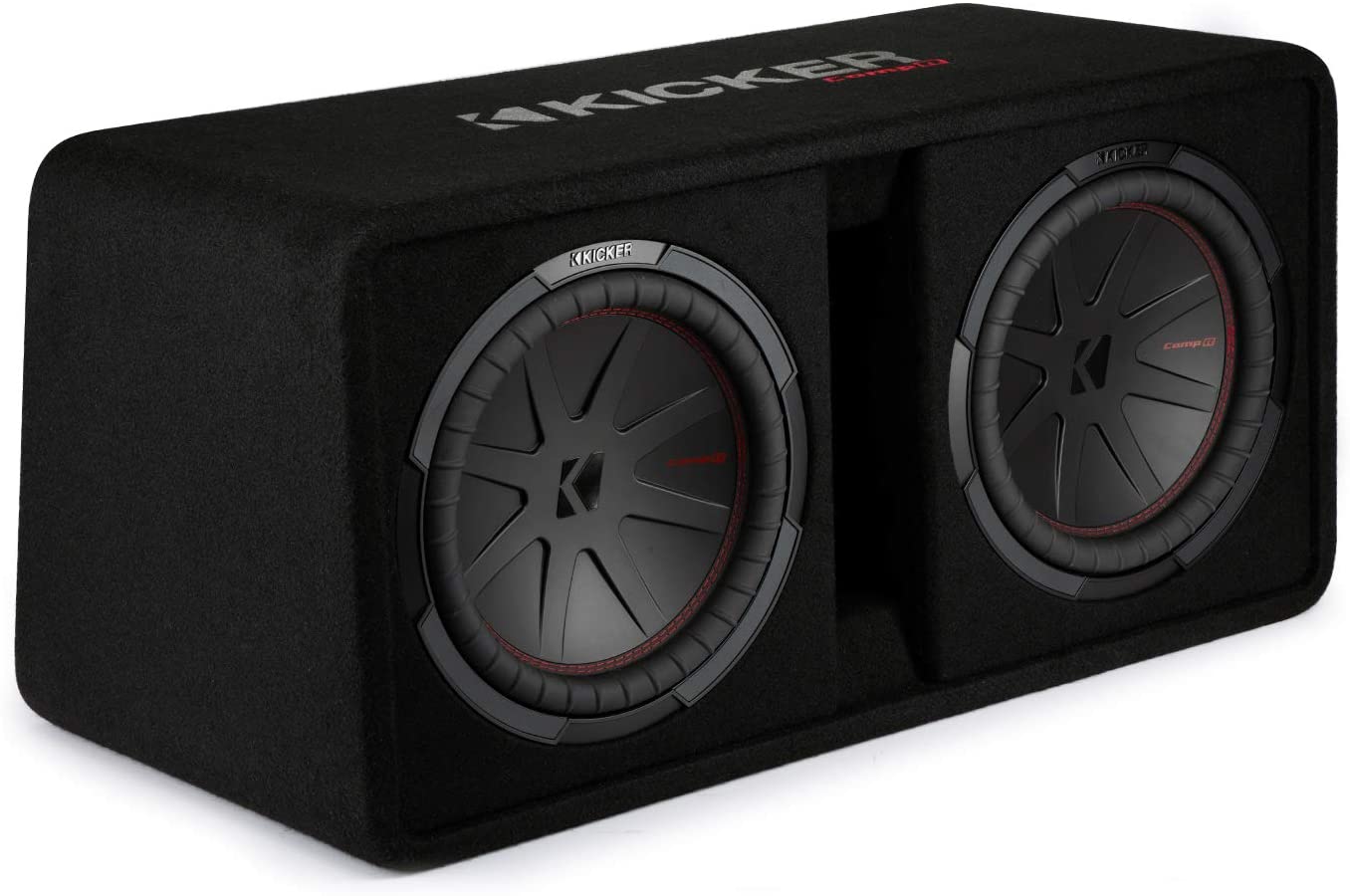
Kicker 48DCWR122 Dual 12" CompR Loaded Subwoofer Enclosure
- Solid MDF Vented Enclosure
- Front-Facing Port for Improved Bass
- Solid Brass Terminal w/Nickel Finish
Save 15%
Hide Details
Show Details
Hide Details
Show Details
Kicker 48DCWR122 Dual 12" CompR Loaded Subwoofer Enclosure Legendary Bass Made Easy The CompR Dual...
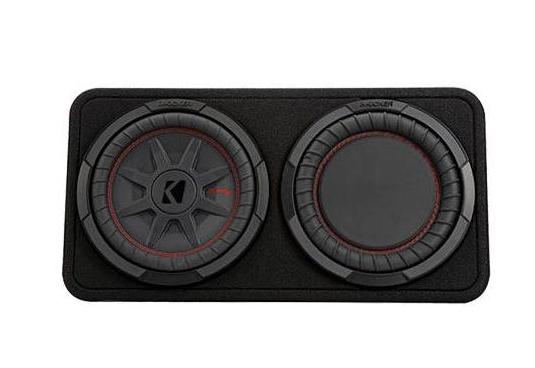
Kicker 48TCWRT102 CompRT 10" Loaded Sub Enclosure
- 400 Watts RMS | 800 Watts Peak
- 10" CompRT 2-Ohm Subwoofer
- Sensitivity (dB 1W/1m]: 96
Hide Details
Show Details
Hide Details
Show Details
Kicker 48TCWRT102 CompRT 10" Loaded Sub Enclosure Now even more efficient and sporting a slick,...
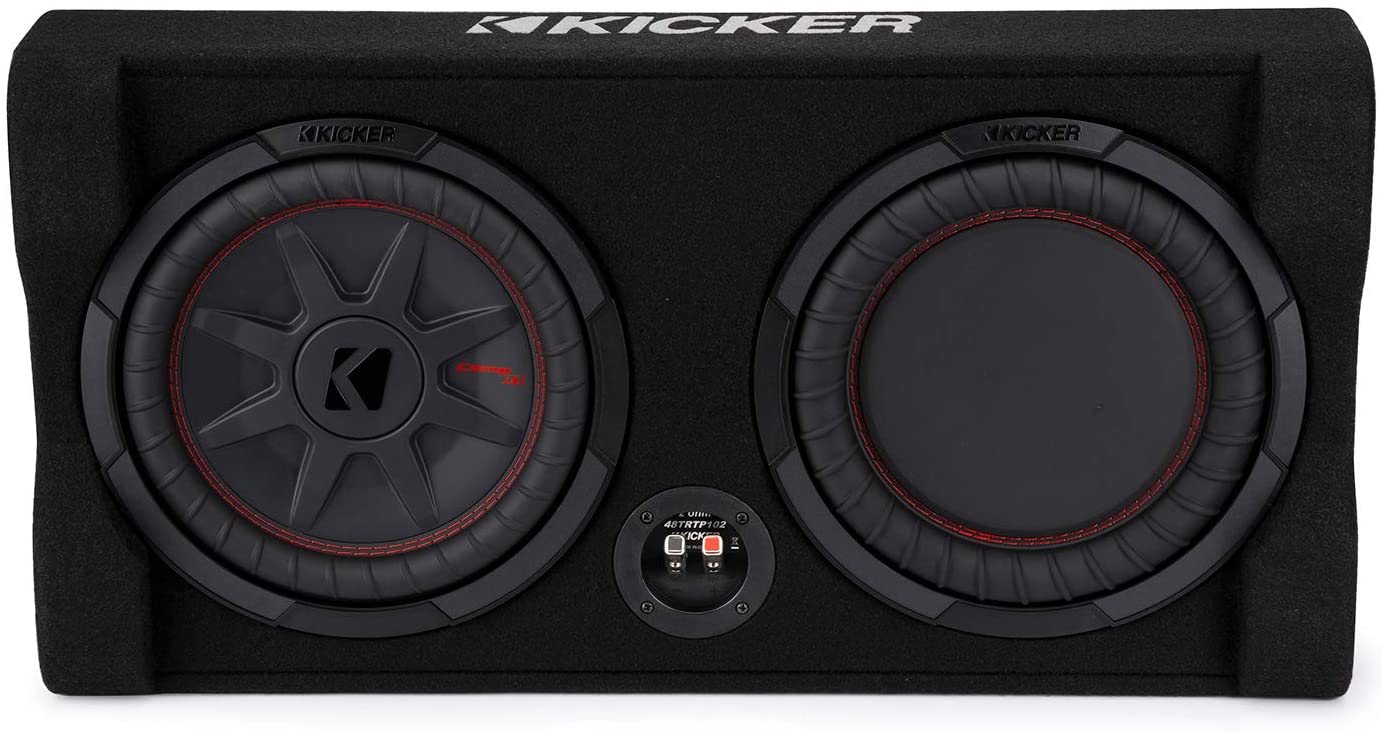
Kicker 48TRTP102 CompRT Dual 10" Loaded Sub Enclosure
- 400 Watts RMS | 800 Watts Peak
- 10" CompRT Subwoofer and Passive Radiator
- Easily Mounts in Cargo Area or Trunk
Hide Details
Show Details
Hide Details
Show Details
Kicker 48TRTP102 CompRT Dual 10" Loaded Sub Enclosure Fitting perfectly under your truck seat or...
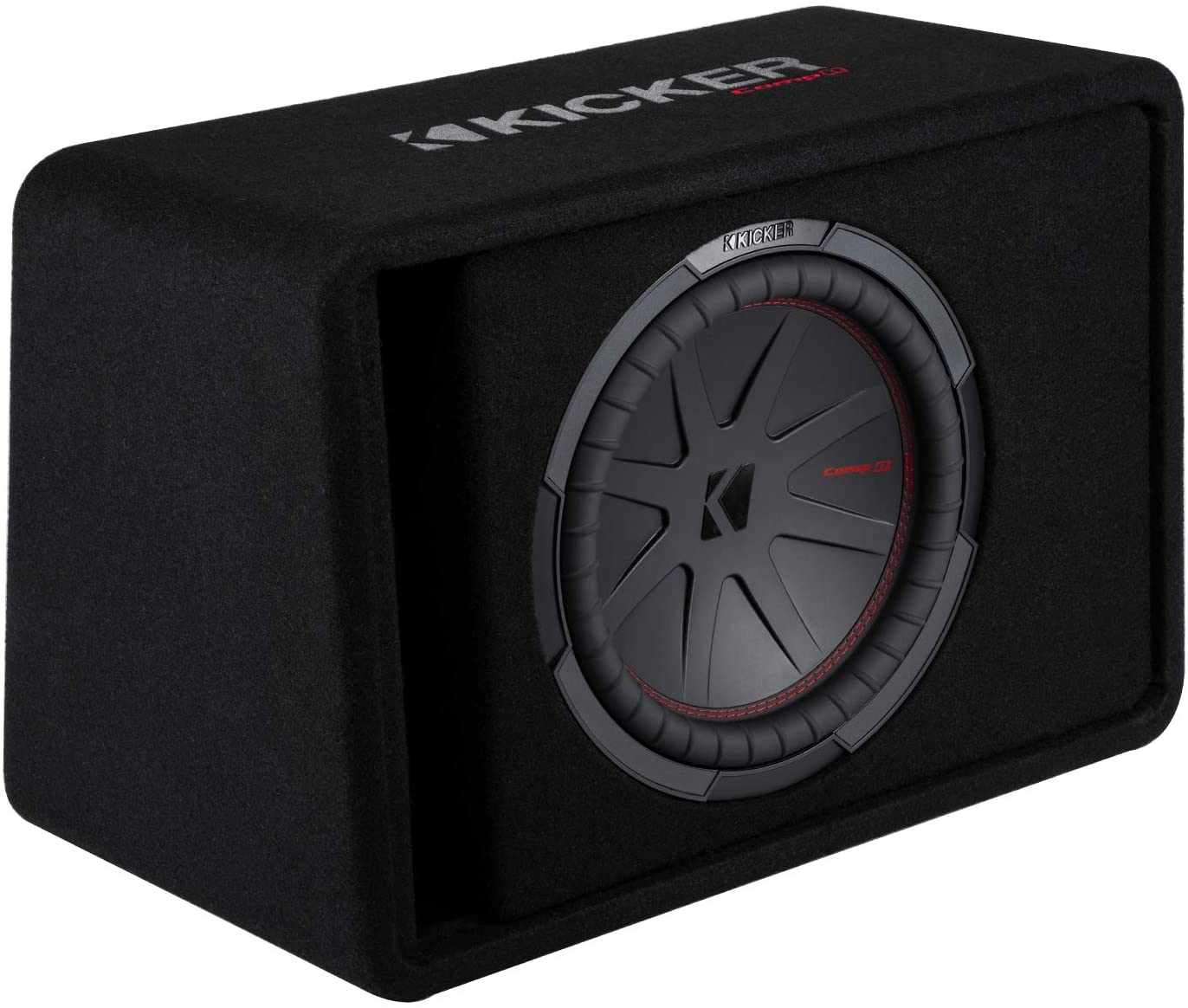
Kicker 48VCWR122 CompR 12" Loaded Sub Enclosure
- 500 Watts RMS | 1000 Watts Peak
- 12" CompRT 2-Ohm Subwoofer
- Polypropylene Cone
Hide Details
Show Details
Hide Details
Show Details
Kicker 48VCWR122 12" CompR Loaded Subwoofer Enclosure - 2 Ohm Now even more efficient and...
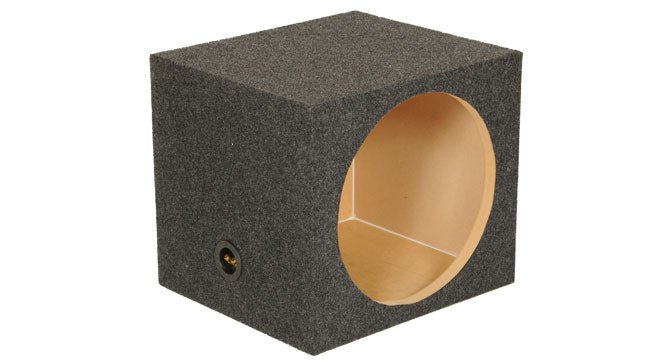
SPL Boxes SB112 Single 12" Sealed Heavy Duty Subwoofer Enclosure
- 3/4" MDF
- Gold Tipped Spring Loaded Terminal
- Premium Charcoal Colored Carpet
Hide Details
Show Details
Hide Details
Show Details
SPL Boxes SB112 Single 12" Sealed Heavy Duty Subwoofer Enclosure Features 3/4" MDF Gold Tipped...
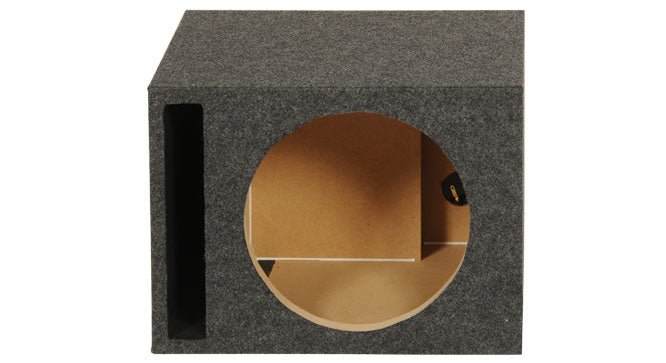
SPL Boxes SB112V Single 12" Vented Heavy Duty Subwoofer Enclosure
- 3/4" MDF
- Gold Tipped Spring Loaded Terminal
- Premium Charcoal Colored Carpet
Hide Details
Show Details
Hide Details
Show Details
SPL Boxes SB112V Single 12" Vented Heavy Duty Subwoofer Enclosure Features 3/4" MDF Gold Tipped...
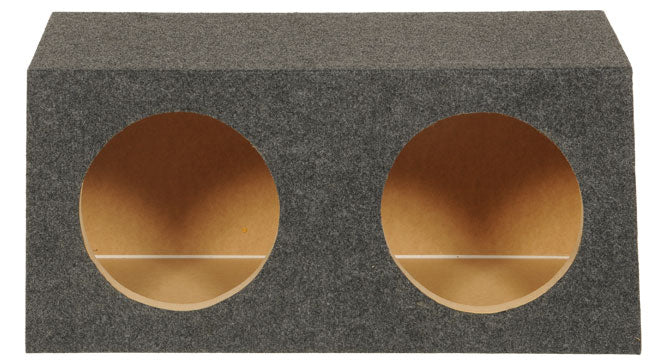
SPL Boxes SB210 Dual 10" Sealed Heavy Duty Subwoofer Enclosure
- 3/4" MDF
- Gold Tipped Spring Loaded Terminal
- Premium Charcoal Colored Carpet
Hide Details
Show Details
Hide Details
Show Details
SPL Boxes SB210 Dual 10" Sealed Heavy Duty Subwoofer Enclosure Features 3/4" MDF Gold Tipped...
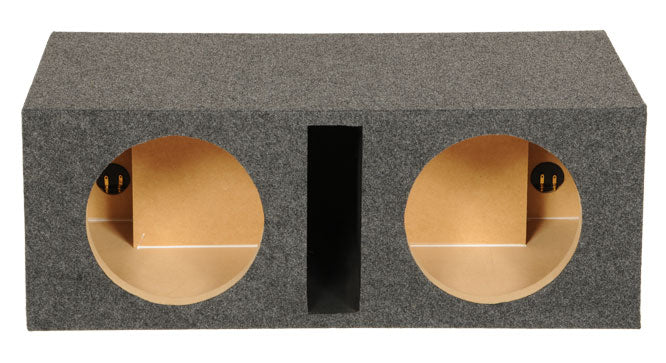
SPL Boxes SB210SV Dual 10" Vented Heavy Duty Subwoofer Enclosure
- 3/4" MDF
- Gold Tipped Spring Loaded Terminal
- Premium Charcoal Colored Carpet
Hide Details
Show Details
Hide Details
Show Details
SPL Boxes SB210SV Dual 10" Vented Heavy Duty Subwoofer Enclosure Features 3/4" MDF Gold Tipped...
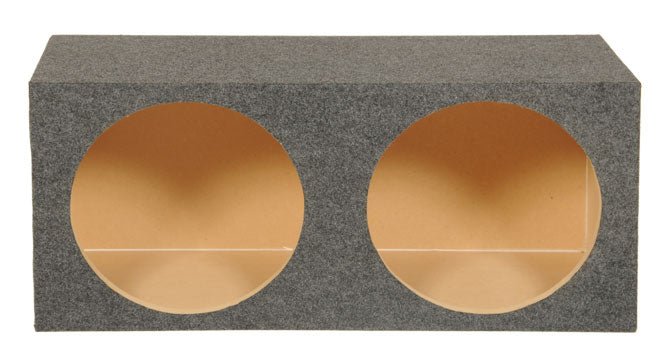
SPL Boxes SB212 Dual 12" Sealed Heavy Duty Subwoofer Enclosure
- 3/4" MDF
- Gold Tipped Spring Loaded Terminal
- Premium Charcoal Colored Carpet
Hide Details
Show Details
Hide Details
Show Details
SPL Boxes SB212 Dual 12" Sealed Heavy Duty Subwoofer Enclosure Features 3/4" MDF Gold Tipped...
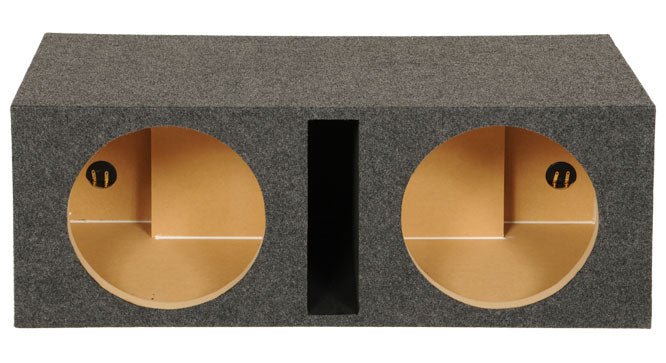
SPL Boxes SB212SV Dual 12" Vented Heavy Duty Subwoofer Enclosure
- 3/4" MDF
- Gold Tipped Spring Loaded Terminal
- Premium Charcoal Colored Carpet
Hide Details
Show Details
Hide Details
Show Details
SPL Boxes SB212SV Dual 12" Vented Heavy Duty Subwoofer Enclosure Features 3/4" MDF Gold Tipped...
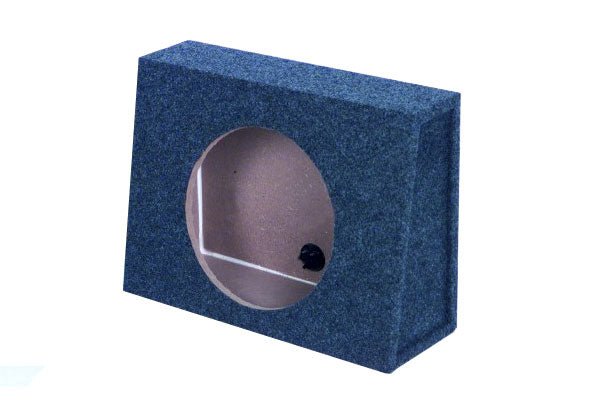
SPL Boxes TW10 Single 10" Sealed Truck Style Subwoofer Enclosure
- 5/8" MDF
- Premium Charcoal Colored Carpet
- Universal Truck Application, Behind Seat
Hide Details
Show Details
Hide Details
Show Details
SPL Boxes TW10 Single 10" Sealed Truck Style Subwoofer Enclosure Features 5/8" MDF Premium Charcoal...
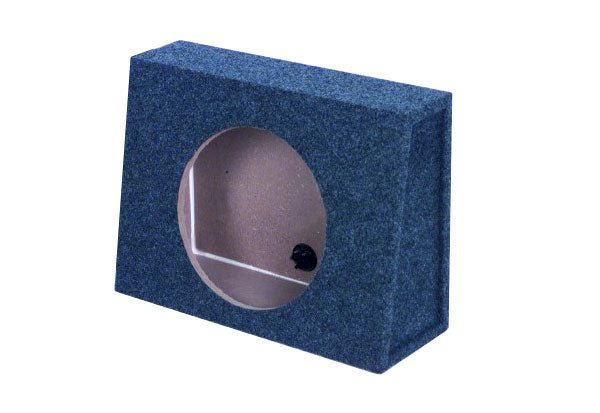
SPL Boxes TW12 Single 12" Sealed Truck Style Subwoofer Enclosure
- 5/8" MDF
- Premium Charcoal Colored Carpet
- Universal Truck Application, Behind Seat
Hide Details
Show Details
Hide Details
Show Details
SPL Boxes TW12 Single 12" Sealed Truck Style Subwoofer Enclosure Features 5/8" MDF Premium Charcoal...

Alpine Dual 10" Subwoofer Bass Package - PPALP3HO
Package Includes:
- Two - Alpine SWA-10S4 Subwoofers
- One - Alpine S-A60M Amplifier
- One - Dual 10" Sealed Enclosure
Hide Details
Show Details
Hide Details
Show Details
Alpine Dual 10" Subwoofer Bass Package - PPALP3HO Package Includes:Two - Alpine SWA-10S4 SubwoofersOne -...
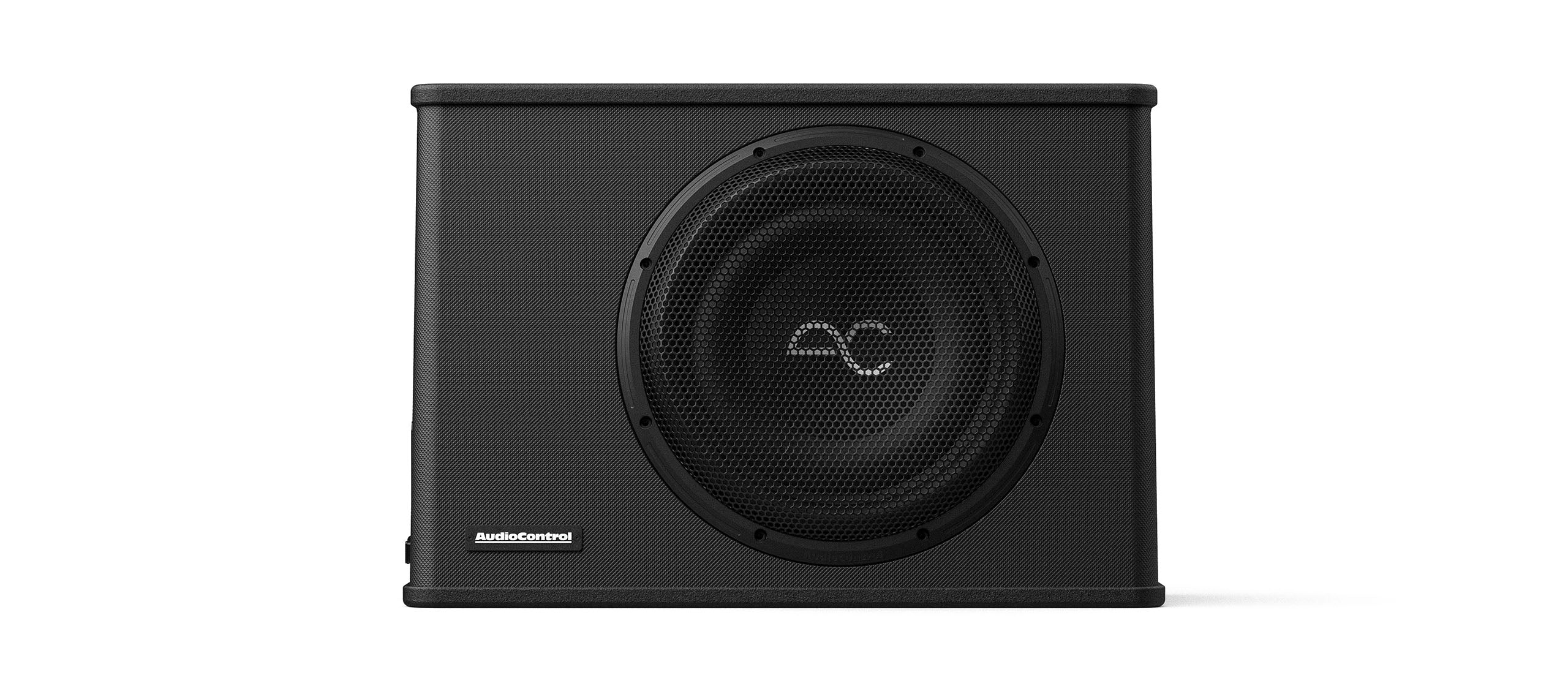
AudioControl SPC-W12 12″ Loaded Sub Enclosure
- 400 Watts RMS | 600 Watts Peak
- Wedge Shape Fits a Variety of Locations
- Element-Resistant Design
Hide Details
Show Details
Hide Details
Show Details
AudioControl SPC-W12 12″ Loaded Subwoofer Wedge Enclosure Upgrade your car audio experience with the AudioControl...
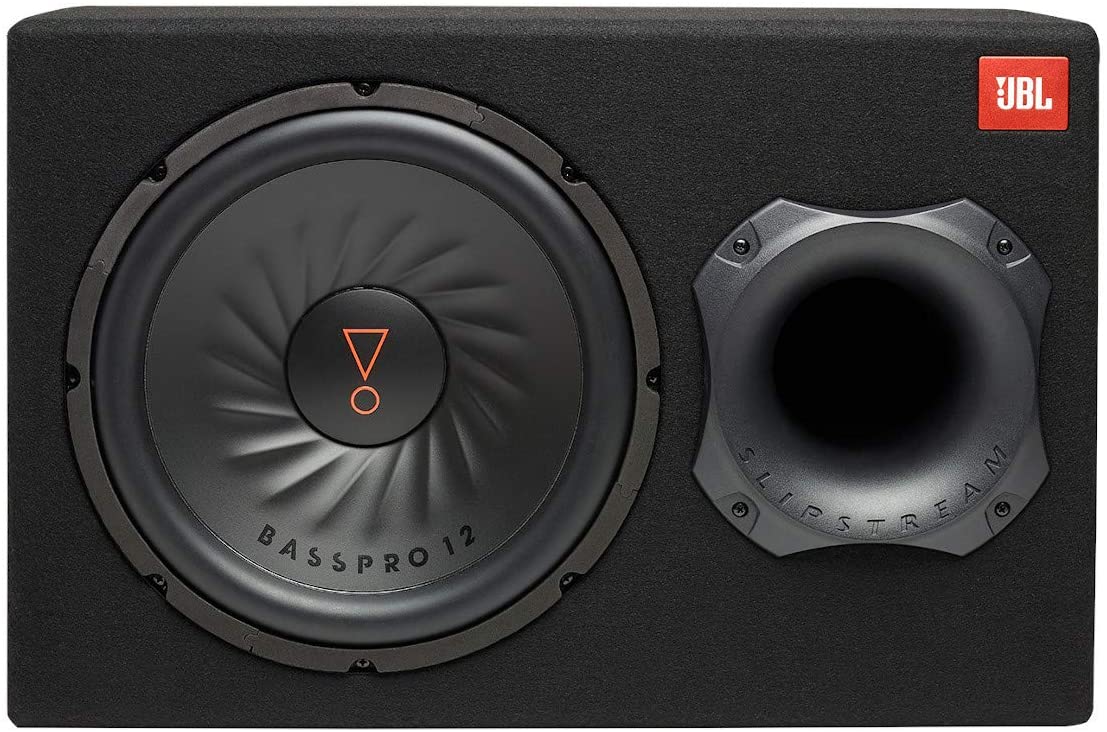
JBL SUBBP12AM 12" Powered Subwoofer
- 150 Watts RMS
- Patented Slipstream Port Technology
- Bass Volume Remote Control
Hide Details
Show Details
Hide Details
Show Details
JBL SUBBP12AM 12" Powered Subwoofer - Vented JBL BassPro 12 delivers 150 Watts of powered...
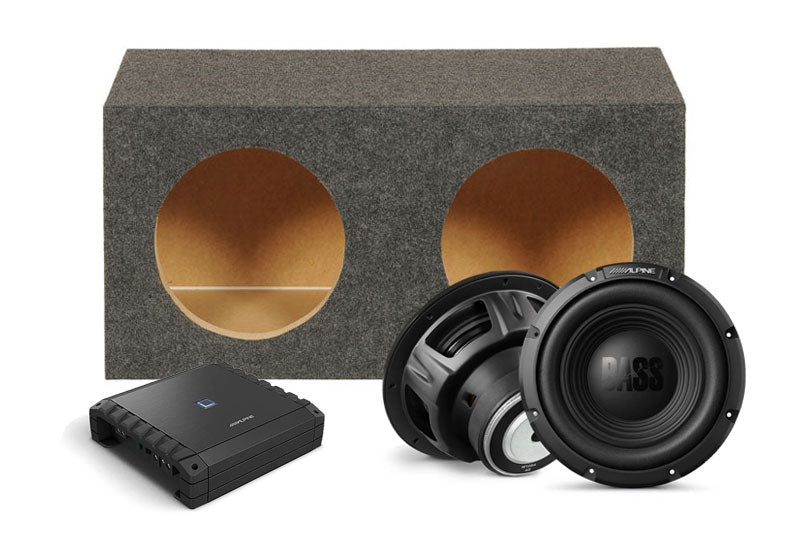
Alpine Dual 10" Subwoofer Bass Package - PPALP3
Package Includes:
- Two - Alpine W10S4 10" Subwoofer
- One - Alpine S-A60M Amplifier
- One - 10" Sealed Subwoofer Enclosure
Hide Details
Show Details
Hide Details
Show Details
Alpine Dual 10" Subwoofer Bass Package - PPALP3 Package Includes: Two - Alpine W10S4 10"...

Alpine Dual 12" Subwoofer Bass Package - PPALP4
Package Includes:
- Two - Alpine W12S4 12" Subs
- One - Alpine S2-A60M Sub Amplifier
- One - 12" Sub Enclosure
Hide Details
Show Details
Hide Details
Show Details
Alpine Dual 12" Subwoofer Bass Package - PPALP4 Package Includes: Two - Alpine W12S4 12"...
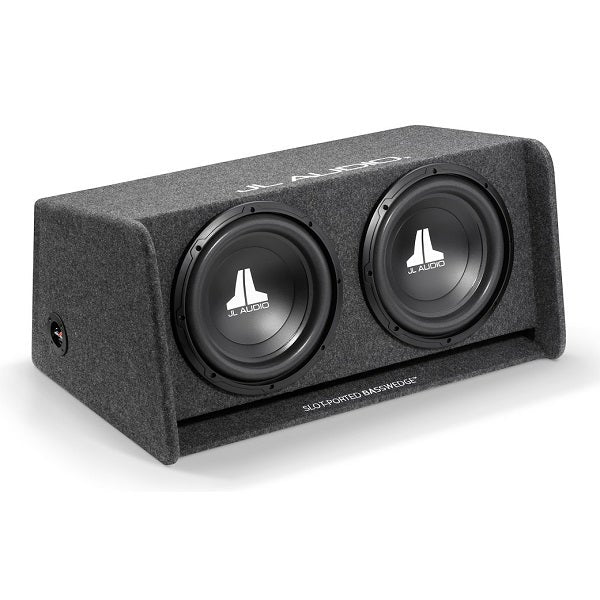
JL Audio CP212-W0v3 Dual 12 Inch BassWedge Ported Enclosure
- Slot Ported Bass Wedge Design
- Comes Loaded, Wired and Ready
- Dark Gray Carpet with JL Audio Embroidery
Hide Details
Show Details
Hide Details
Show Details
JL Audio CP212-W0v3 Enclosed Subwoofer System with Dual 12W0v3-4 Subwoofer Drivers, Dark Gray Carpet (600...
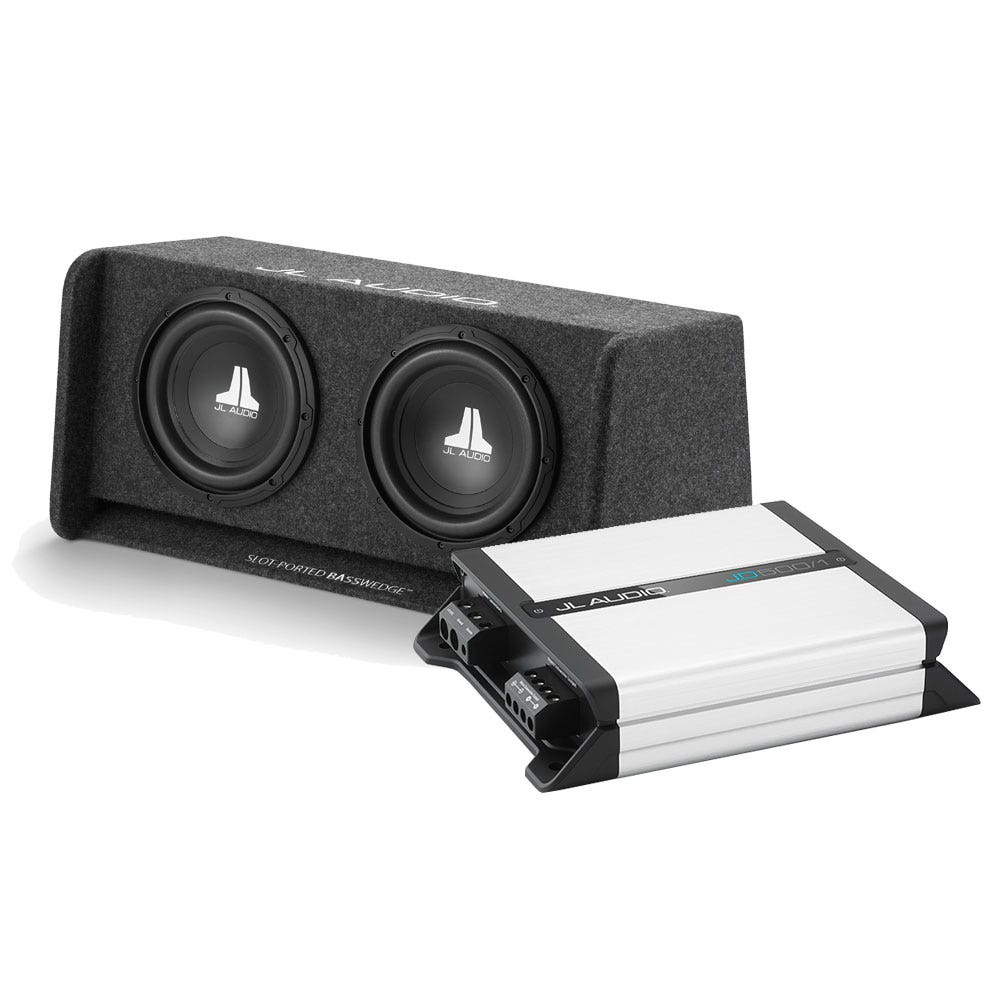
Car Toys JL Audio Dual 12" Subwoofer Bass Package - PPJLA8
Package Includes:
- 1 - JL Audio CP212-W0v3 Loaded Dual Subwoofer Enclosure
- 1 - JL Audio JD500/1 500 Watt Mono Subwoofer Amplifier
Hide Details
Show Details
Hide Details
Show Details
Car Toys JL Audio Dual 12" Subwoofer Bass Package - PPJLA8 Package Includes: 1 -...
